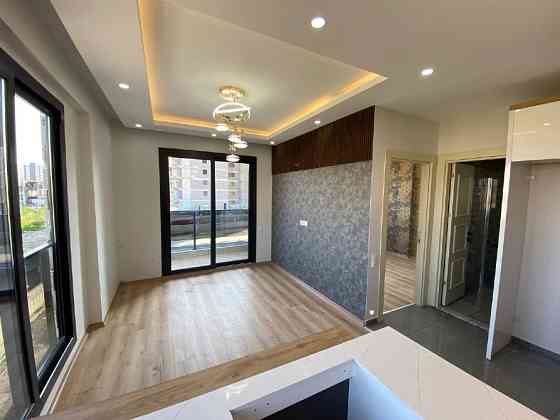
Hungary on the rise — the return of foreign investors
After a period of relative calm caused by global economic turmoil and the pandemic, the Hungarian real estate market is once again becoming attractive to foreign buyers in 2024. Particularly active interest is shown by investors from China and Russia, who view Hungary as a promising investment destination. The reasons for the return of foreign investors were:
- Stable growth of the Hungarian economy and an increase in the standard of living of the population.
- Relatively low real estate prices compared to other European countries.
- Favorable investment climate and government support for foreign investment.
- Favorable conditions for obtaining a residence permit and citizenship of Hungary through the purchase of real estate.
- Developed infrastructure, high quality of life and rich cultural heritage of the country.
As for prices, according to leading broker Duna House, in 2024 the average sale price of houses in the country increased by 13% compared to the previous year and reached 45.2 million Hungarian forints. In Budapest, average prices increased to HUF 60.4 million (+6%), and in the regions – to HUF 39.1 million. New buildings in the country are sold at an average price of HUF 830,000 per square meter, and in Budapest the cost of a square meter of new housing reaches HUF 1.5 million. Apartments in apartment buildings were sold at an average of HUF 807,000 per square meter. Detached houses – at HUF 422,000 per square meter. The minimum price per square meter is HUF 128,000 (housing requiring renovation in the regions). Maximum prices reach HUF 1.2 million per square meter and higher (elite real estate in the central districts of Budapest). In 2024, between 120,000 and 125,000 properties were sold across the country, indicating high market activity.
Demand characteristics among buyers
- Preferences of Chinese investors — traditionally focus on buying apartments and flats in Budapest, especially in the central and rapidly developing areas of the capital. They focus on properties that promise high rental income and the prospect of capital growth in the future.
- Interests of Russian buyers — more often pay attention to residential buildings and flats in other large cities of Hungary, and also consider promising regions for capital placement. They are interested in properties with good potential for long-term rent and subsequent resale.
- Budapest — the capital — remains the main center of attraction for foreign real estate buyers. They are interested in both new studio apartments and high-quality secondary properties in prestigious areas of the city.
Install our app and get all the tools you need to search for real estate abroad in your smartphone! The mobile application will allow you to quickly access your personal account, manage your favorite properties and track your requests, directly exchange messages with sellers and buyers.

Government measures to regulate the real estate market
Continued price growth and high investment activity from foreigners prompted the Hungarian government to take a number of steps to stabilize the market:
- Introduction of a two-year moratorium on renting housing through short-term rental platforms (e.g. Airbnb) for new properties. This measure is intended to limit price increases and make the market more accessible to locals.
- Discussions on tightening regulations for foreign investors and increasing taxes for owners who rent out housing for short terms.
- Maintaining government subsidies for locals who want to buy their own home.
Despite these measures, the overall investment attractiveness of the Hungarian real estate market remains high due to a combination of rising prices and relatively low mortgage rates for foreigners with proven income.
Prospects and challenges for the development of the Hungarian real estate market in 2025
Experts predict that in 2025, the Hungarian real estate market will show slow but steady growth. Large international developers are not in a hurry to leave the country, despite recent difficulties for some foreign players. At the same time, Hungarian entrepreneurs are increasing their influence in the development sector and are more actively involved in large projects both within the country and abroad. Factors contributing to the further development of the market are:
- Stable economic growth and increased purchasing power of the Hungarian population.
- Continued interest from foreign investors, especially from China and Russia.
- Development of infrastructure and transport accessibility in the country's regions.
- Government support for the construction industry and affordable housing programs for the local population.
- Strengthening the position of Budapest as one of the leading tourist and business centers of Central Europe.
Despite the positive outlook, the Hungarian real estate market may face a number of challenges and risks in the coming years:
- Possible tightening of regulations regarding foreign investors and short-term rentals.
- Risk of the market overheating and the formation of a bubble due to excessive price increases and speculative activity.
- Potential decline in interest from foreign buyers in case of a deterioration in the global economic situation.
- Competition from other European countries to attract foreign investment in real estate.
Thus, the return of non-European buyers, especially from China and Russia, has significantly revived the Hungarian real estate market in 2024. Rising prices, high investment activity and new government initiatives to regulate the market create a dynamic and multifaceted picture of the sector’s development. In the coming years, continued sustainable growth is expected, supported by foreign investor interest, the country’s economic development and the strengthening of Budapest’s position as a regional hub. At the same time, the market may face a number of challenges, including potential tightening of regulations and the risk of overheating. Overall, the Hungarian real estate market remains attractive to investors, offering a combination of income and capital growth opportunities. However, as with any investment, it is important to carefully assess the risks and make informed decisions, supported by professional advice and a deep understanding of the local context.
 10
10
 155
155  3
3  2
2  2
2  10
10  19
19
 58
58  2
2  1
1  1
1  3
3  20
20
 55
55  2
2  1
1  1
1  12
12  11
11

In 2024, the Hungarian real estate market has once again become attractive to foreign non-European buyers. Investors from China and Russia are showing significant interest, especially in the residential real estate segment and in the capital. The article examines the reasons for the return of foreign investors, price dynamics, regional characteristics of demand and new government measures to regulate the market.

An overview of key trends and prospects for the Slovenian real estate market in 2025: stable growth, demand from foreigners, shortage of new housing, technological innovations and environmental trends with unexpectedly high returns for investors.

New Zealand has radically reformed its investment visa program, turning it into one of the most accessible and flexible in the world. The removal of language requirements, a reduction in mandatory length of stay and an expansion of investment opportunities have led to a sharp increase in interest from foreign investors. We will tell you about the details of the reform, the benefits for investors and the impact on the region's economy.


























